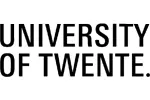

the Netherlands
University of Twente| The award | How you will study | Study duration | Course start | Domestic course fees | International course fees |
|---|---|---|---|---|---|
| Summer School | Full-time | 9 days | August | find out | find out |
Worldwide, billions of dollars are invested in health technology development. Health technology comprises a wide range of products and is used to diagnose, monitor or treat diseases or medical conditions affecting humans.
Are you the health scientist of the future?Technology is intended to improve the quality of healthcare delivered through earlier diagnosis, less invasive treatment options and reductions in hospital stays and rehabilitation times. Recent advances in medical technology have also focused on cost reduction. Medical technology may broadly include medical devices, information technology, biotech, and healthcare services.
Revenue driven approach
There is an increasing pressure to maximize the revenues of the investments in health technology. Governments need to be informed about the benefits of spending public resources and universities may need to direct their research programs in order to maximize societal benefits.
Assuming that all health technology products need to be adopted by the heavily regulated healthcare market at one point in time, it is worthwhile to look at the logic behind healthcare decision making, specifically decision on the coverage of medical products and decisions on the use of the these products under competing and uncertain conditions.
CuriousU 2017Registration is open now!Register nowOr read more about accommodation, courses, admission criteria and the fee.Topics
Health sciences and health systemsA good health system delivers quality services to all people, when and where they need them.
Health Sciences investigates how financing systems, organizational structures, administrative processes and social factors affect access to healthcare, the quality and cost of healthcare, and ultimately our health and well-being. Its foundation is in management principles and in the social sciences. Health Sciences is essential to improving health and patient-centered care. During this course you will get an overview of health sciences and health systems.
Multi-Criteria Analysis (MCA) methodsMulti-Criteria Analysis (MCA) is a decision-making tool developed for complex problems. In a situation where multiple criteria are involved confusion can arise if a logical, well-structured decision-making process is not followed.
Another difficulty in decision making is that reaching a general consensus in a multidisciplinary team can be very difficult to achieve. By using MCA the members don't have to agree on the relative importance of the criteria or the rankings of the alternatives. Each member enters his or her own judgements, and makes a distinct, identifiable contribution to a jointly reached conclusion.
Decision treeA decision tree is a graph that uses a branching method to illustrate every possible outcome of a decision.
Decision trees can be drawn by hand or created with a graphics program or specialized software. Informally, decision trees are useful for focusing discussion when a group must make a decision. Programmatically, they can be used to assign monetary/time or other values to possible outcomes so that decisions can be automated.
Course aim
Course overview
Contact University of Twente to find course entry requirements.
Below are some suggested courses at other providers that you may also be interested in:
Molecular Simulations of Weak Polyelectrolytes in Semidilute Regime PhD
Faculty of Science, Charles University
Find out moreConsider a Foundation or Pathway course at University of Twente to prepare for your chosen course:
If you do not meet the entry requirements for this course then consider one of these courses from another institution:
There are 85 other courses listed from University of Twente. A selection of these are displayed below:
Find out more about studying in the Netherlands